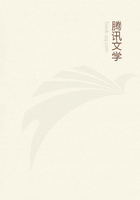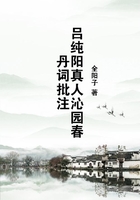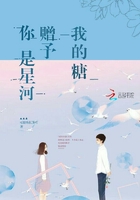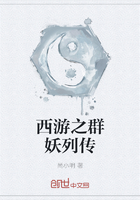Of course, that is not enough to give me the right to judge of the theatre. In my opinion the theatre has become no better than it was thirty or forty years ago. Just as in the past, I can never find a glass of clean water in the corridors or foyers of the theatre. Just as in the past, the attendants fine me twenty kopecks for my fur coat, though there is nothing reprehensible in wearing a warm coat in winter. As in the past, for no sort of reason, music is played in the intervals, which adds something new and uncalled-for to the impression made by the play. As in the past, men go in the intervals and drink spirits in the buffet. If no progress can be seen in trifles, I should look for it in vain in what is more important. When an actor wrapped from head to foot in stage traditions and conventions tries to recite a simple ordinary speech, "To be or not to be," not simply, but invariably with the accompaniment of hissing and convulsive movements all over his body, or when he tries to convince me at all costs that Tchatsky, who talks so much with fools and is so fond of folly, is a very clever man, and that "Woe from Wit" is not a dull play, the stage gives me the same feeling of conventionality which bored me so much forty years ago when I was regaled with the classical howling and beating on the breast. And every time I come out of the theatre more conservative than I go in.
The sentimental and confiding public may be persuaded that the stage, even in its present form, is a school; but any one who is familiar with a school in its true sense will not be caught with that bait. I cannot say what will happen in fifty or a hundred years, but in its actual condition the theatre can serve only as an entertainment. But this entertainment is too costly to be frequently enjoyed. It robs the state of thousands of healthy and talented young men and women, who, if they had not devoted themselves to the theatre, might have been good doctors, farmers, schoolmistresses, officers; it robs the public of the evening hours -- the best time for intellectual work and social intercourse. I say nothing of the waste of money and the moral damage to the spectator when he sees murder, fornication, or false witness unsuitably treated on the stage.
Katya was of an entirely different opinion. She assured me that the theatre, even in its present condition, was superior to the lecture-hall, to books, or to anything in the world. The stage was a power that united in itself all the arts, and actors were missionaries. No art nor science was capable of producing so strong and so certain an effect on the soul of man as the stage, and it was with good reason that an actor of medium quality enjoys greater popularity than the greatest savant or artist. And no sort of public service could provide such enjoyment and gratification as the theatre.
And one fine day Katya joined a troupe of actors, and went off, I believe to Ufa, taking away with her a good supply of money, a store of rainbow hopes, and the most aristocratic views of her work.
Her first letters on the journey were marvellous. I read them, and was simply amazed that those small sheets of paper could contain so much youth, purity of spirit, holy innocence, and at the same time subtle and apt judgments which would have done credit to a fine mas culine intellect. It was more like a rapturous paean of praise she sent me than a mere description of the Volga, the country, the towns she visited, her companions, her failures and successes; every sentence was fragrant with that confiding trustfulness I was accustomed to read in her face -- and at the same time there were a great many grammatical mistakes, and there was scarcely any punctuation at all.
Before six months had passed I received a highly poetical and enthusiastic letter beginning with the words, "I have come to love . . ." This letter was accompanied by a photograph representing a young man with a shaven face, a wide-brimmed hat, and a plaid flung over his shoulder. The letters that followed were as splendid as before, but now commas and stops made their appearance in them, the grammatical mistakes disappeared, and there was a distinctly masculine flavour about them. Katya began writing to me how splendid it would be to build a great theatre somewhere on the Volga, on a cooperative system, and to attract to the enterprise the rich merchants and the steamer owners; there would be a great deal of money in it; there would be vast audiences; the actors would play on co-operative terms. . . .
Possibly all this was really excellent, but it seemed to me that such schemes could only originate from a man's mind.
However that may have been, for a year and a half everything seemed to go well: Katya was in love, believed in her work, and was happy; but then I began to notice in her letters unmistakable signs of falling off. It began with Katya's complaining of her companions -- this was the first and most ominous symptom; if a young scientific or literary man begins his career with bitter complaints of scientific and literary men, it is a sure sign that he is worn out and not fit for his work. Katya wrote to me that her companions did not attend the rehearsals and never knew their parts; that one could see in every one of them an utter disrespect for the public in the production of absurd plays, and in their behaviour on the stage; that for the benefit of the Actors' Fund, which they only talked about, actresses of the serious drama demeaned themselves by singing chansonettes, while tragic actors sang comic songs making fun of deceived husbands and the pregnant condition of unfaithful wives, and so on. In fact, it was amazing that all this had not yet ruined the provincial stage, and that it could still maintain itself on such a rotten and unsubstantial footing.
In answer I wrote Katya a long and, I must confess, a very boring letter. Among other things, I wrote to her:

